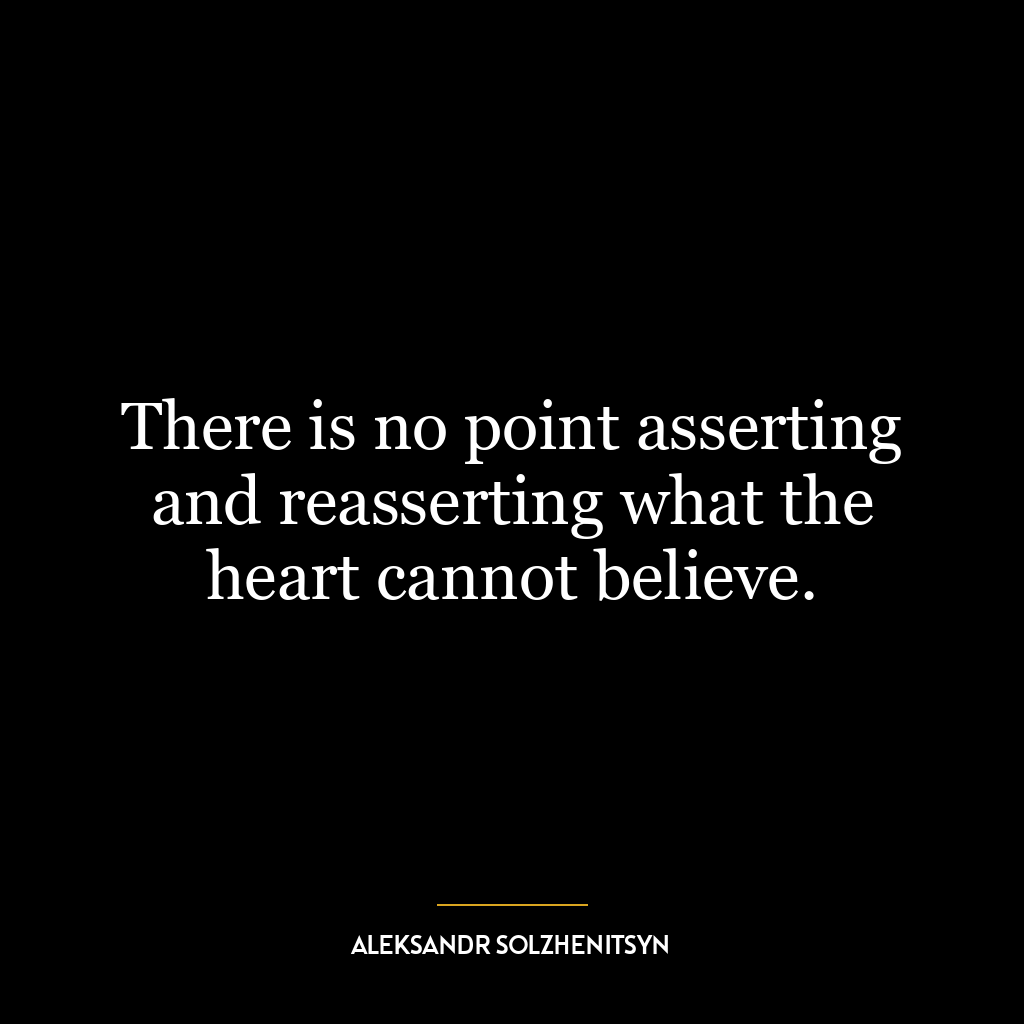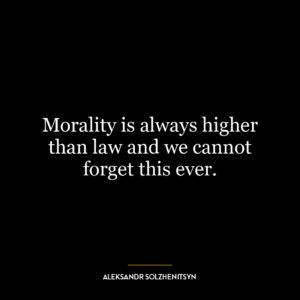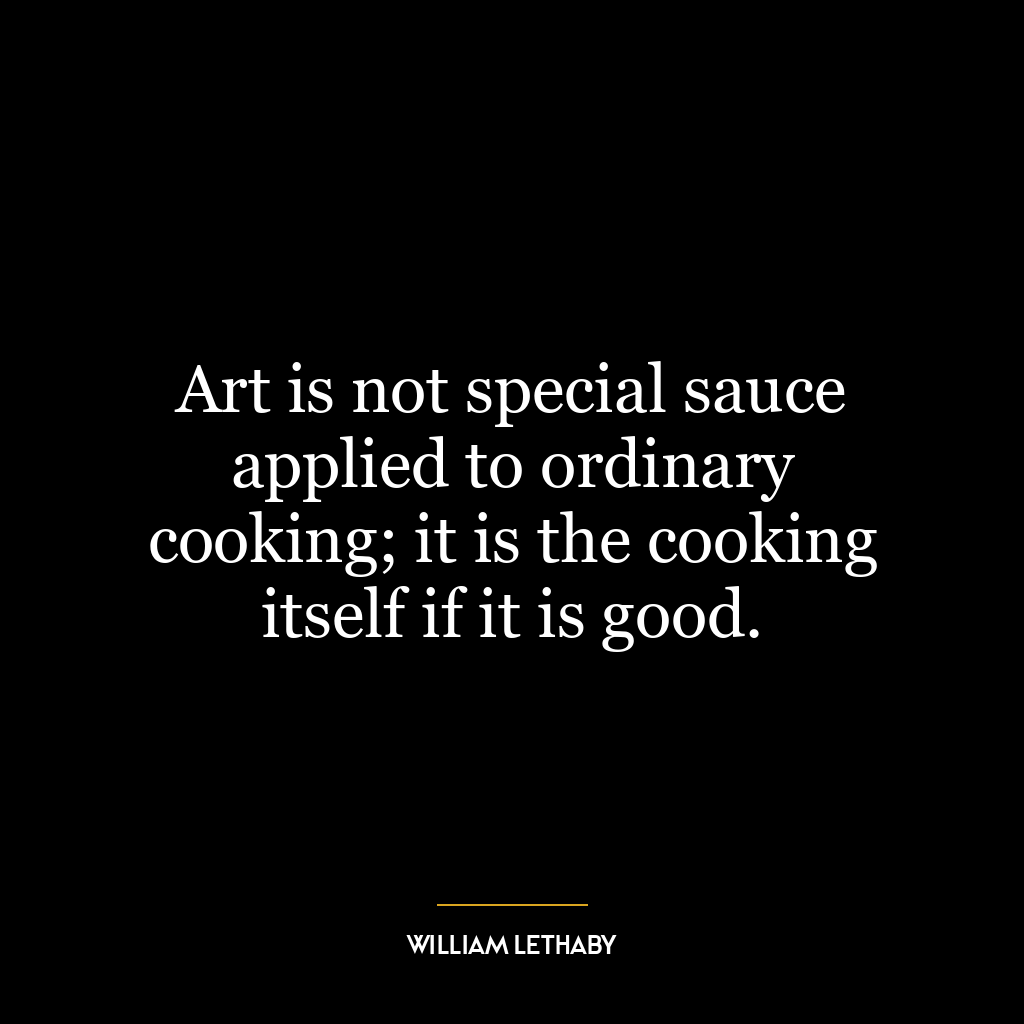There is no point asserting and reasserting what the heart cannot believe.
This quote is an assertion about the futility of trying to convince oneself or others of something that one’s core being fundamentally rejects. The ‘heart’ here is a metaphor for our deepest beliefs, values, and instincts. According to the quote, no amount of verbal or mental insistence can change what we truly believe in our hearts. It’s about the deep-seated truths that define who we are and what we stand for.
The quote implies that sincerity, authenticity, and self-awareness are crucial. It suggests that we should align our words and actions with our deepest beliefs and values. If we assert something that contradicts our true feelings, we will not only fail to convince others, but we will also be in a state of internal conflict, leading to stress and unhappiness.
In today’s world, this quote can be applied in various contexts. In the era of ‘fake news’ and ‘alternative facts’, it reminds us that mere repetition of a statement does not make it true. It encourages us to question what we are told and to seek evidence before forming our beliefs.
In the context of personal development, it suggests the importance of self-awareness and authenticity. Many people try to change themselves to fit into societal norms or to please others, often asserting things they don’t truly believe. This quote advises against such behavior, suggesting that personal growth should come from a place of authenticity, where one’s actions align with their core beliefs and values.
In relationships, it can be seen as a call for honesty and authenticity. Pretending to feel something you don’t can lead to misunderstandings and hurt feelings. It’s better to be honest about your feelings, even if the truth is hard to accept.
In summary, this quote is a powerful reminder that truth and authenticity are vital, and that we cannot fool our hearts by asserting what we do not truly believe.















